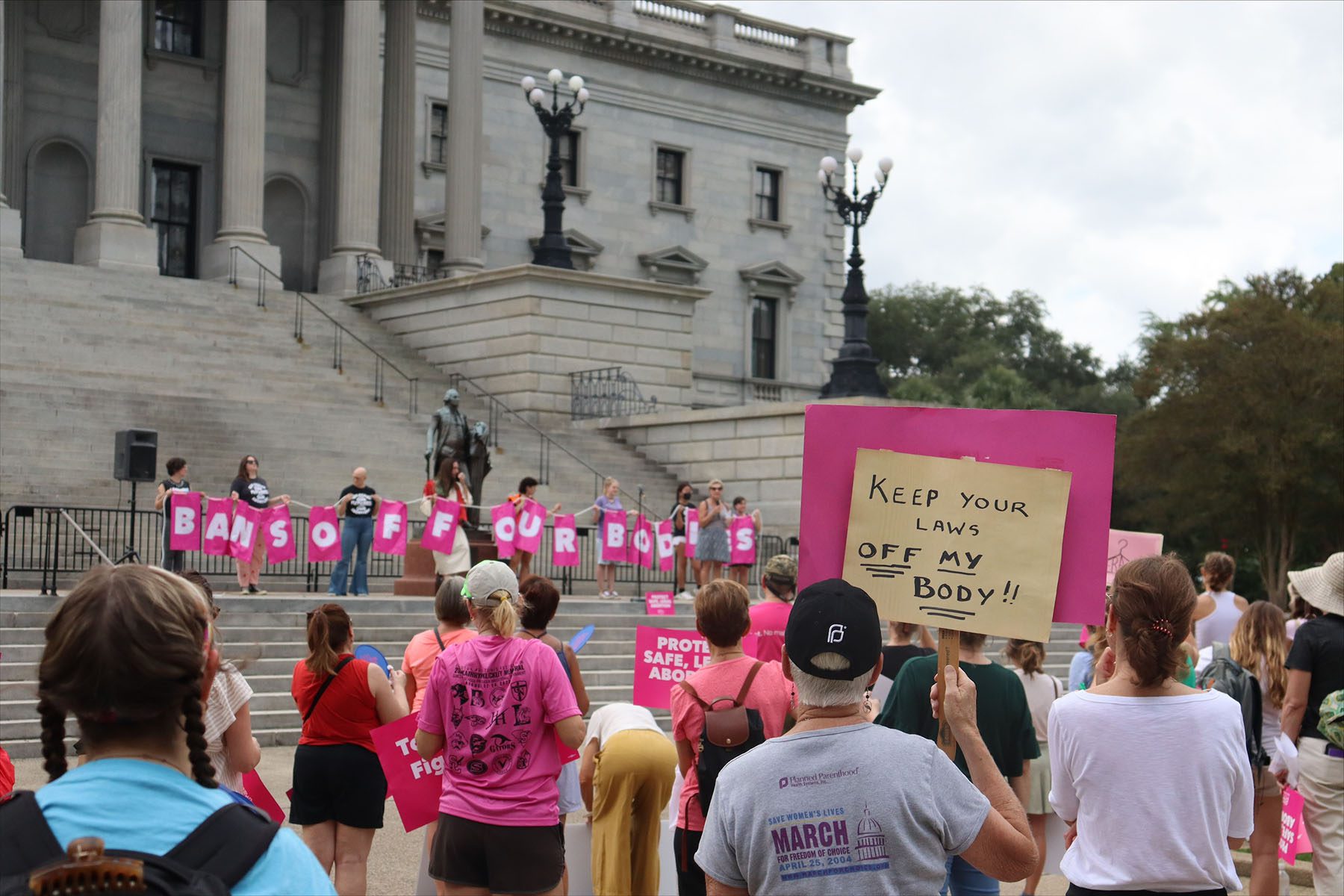South Carolina lawmakers voted to ban abortion past six weeks, legislation that would essentially end access to the procedure across the American South.
The ban, which passed the state’s House of Representatives 82 to 33, is an amended version of a six-week prohibition that won Senate approval in February — meaning the Senate must now approve the changed bill before it can become law, or lawmakers must resolve differences in a conference committee. Once that happens, the bill would then head to Gov. Henry McMaster, who has said he supports a six-week ban. If signed, it would take effect immediately.
Lawmakers went to great lengths to pass the ban. Technically, South Carolina’s legislative session ended last week, but the governor called lawmakers back to Columbia specifically to debate this particular bill.
The vote came three weeks after efforts to pass a near-total ban imploded. That bill died after a filibuster by the South Carolina Senate’s five women, leaving the six-week prohibition as the only bill that could conceivably pass this year.
Democrats filed close to 1,000 amendments to the bill, many of which Republicans moved to strike. But lawmakers still discussed hundreds of amendments. The debate lasted two days, with Democrat lawmakers regularly asking to pause the debate or moving to adjourn entirely.
South Carolina passed a six-week abortion ban in 2019, before the U.S. Supreme Court overturned Roe v. Wade. This past January, the state’s highest court struck down that law, which never went into effect, ruling that South Carolina’s own constitution guaranteed the right to an abortion.
But the makeup of the state’s court has changed since then, with its sole woman justice retiring in February. And South Carolina’s new six-week ban, state lawmakers believe, has a better chance of surviving legal scrutiny.
South Carolina’s ban technically allows people to access an abortion up to 12 weeks of pregnancy in cases of rape or incest. But to qualify, the physician must report the case to law enforcement within 24 hours of providing the abortion — a stipulation that Democratic lawmakers pointed out is likely to deter most people who could qualify from getting care.
The bill was criticized by South Carolina’s chapter of the American College for Obstetricians and Gynecology, who singled out its likely impact on people who experience complications during pregnancy. The South Carolina ban says abortion is permitted in a “medical emergency” — language that in other states with such bans physicians have found to be too vague to effectively use — or a “fatal fetal anomaly.”
The bill does not have any exception for pregnancies where a fetal anomaly is not technically lethal, but will severely impair quality of life or may allow a baby to live for only a few years.
Already, access to abortion was limited in South Carolina, where none of the three operating clinics provide abortion past 14 weeks of pregnancy. But a six-week ban — early enough that many people do not know they are pregnant — will have significant implications. State data from 2019 through 2021 shows that the majority of abortions done in South Carolina take place after six weeks of pregnancy.
The legislature’s vote comes on the heels of a flurry of efforts to drastically curb abortion access in the South. Florida passed a six-week ban earlier this spring, and North Carolina lawmakers voted Tuesday to ban abortion after 12 weeks of pregnancy and add new requirements for people getting medication abortions. The Florida ban has not yet taken effect, due to a pending court case; currently, abortion there is allowed up until 15 weeks.
If all three of these bans go into effect, North Carolina will be the only state in the South to allow abortion through the first trimester. The procedure is currently banned in Mississippi, Alabama, Arkansas, Louisiana and Tennessee; it is only allowed up to six weeks in Georgia.
People who cannot get an abortion in those states will have limited options for travel, with the closest options in Illinois, Virginia and Washington, D.C.





